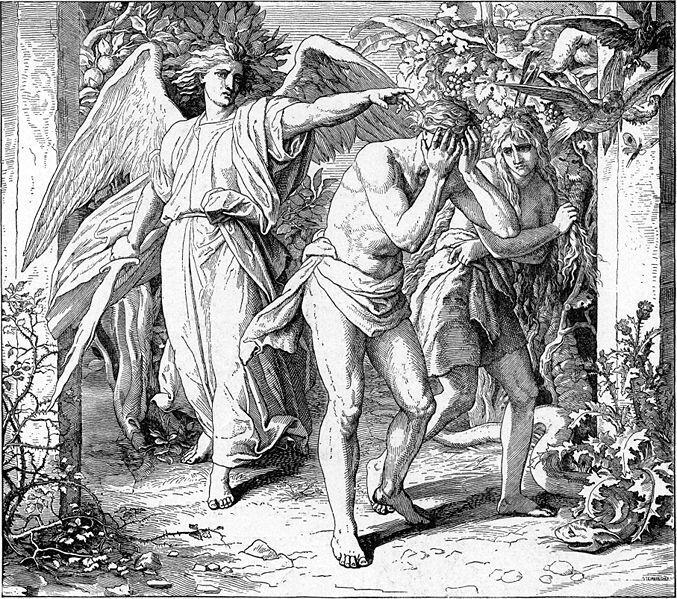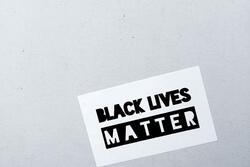Beyond Crime and Punishment
Adam and Eve: an iconic duo. Their names go together like “hot and cold,” “life and death,” and “war and peace.” Upon hearing their names, most will immediately recall the details of the creation story in all its glory. But behind this age-old tale lie the roots of modern problems that have tormented our society for centuries.
When the serpent tricks Eve, and thus Adam, into eating an apple from the Tree of Knowledge, God wastes no time in punishing the pair. God warns Adam that men will toil over their labors before they may eat, and punishes Eve and the matriarchs to come that they will always “crave men” and that men shall govern over women. In explicit language, this story plants the basis of multiple complex systems of oppression, starting with patriarchy, in its opening story.
In crafting a patriarchal system, God cements another problematic concept into the teachings that form the basis of so many parts of modern society; according to the words of Genesis, when Adam and Eve commit a crime, God immediately chooses to punish the duo. This etches into stone what would soon become another well-known pair: crime and punishment.
The relationship between crime and punishment is immutable throughout history and has woven its way into the folds of our present-day society. Whether it's in the context of school, a democracy, or war, when a person or country breaks the rules, they are bound to be penalized. The cost and consequences can vary drastically from a slap on the wrist to a fine to a lengthy prison sentence, or even to death. But it is this constant relationship between crime and punishment that forms the basis of our criminal justice system, and it has time and again proven to be broken.
One spring day in middle school, as my class embarked on a study of modern-day human trafficking, my teacher listed various ways slavery still exists in our world. I nodded my head as she mentioned blood diamonds, sex trafficking, and domestic servitude—all familiar forms I had seen in the news. But when American prisoners were added to the list, I was caught by surprise. In my head, slavery in the United States immediately yielded images of large southern plantations with cotton and sugar fields—all of which had been outlawed with the passing of the Thirteenth Amendment.
But as I soon learned, our criminal justice system bears many familiar marks to the system of legal slavery, and, later, Jim Crow laws, that defined America for centuries. The disparity between incarceration rates for Black and white Americans is prevalent in prison populations across the country. In my own state of Maryland, Black people make up close to 30 percent of the total population. Yet in 2014, 72 percent of Maryland’s prison population was Black.
These statistics do not hide anything. The flaws in America’s criminal justice system stem directly from the dissolution of slavery and the passing of the Thirteenth Amendment. The very article written to abolish slavery creates an exception, authorizing its use as a punishment for crime. Ever since this language was added to the law of the land, prisoners across the country have been forced to work for meager wages, if at all, under inhumane conditions. Our prison system plays a powerful role in continuing to embed racism into our society, and in reinforcing the system of oppression that torments communities of color. A criminal record can leave formerly incarcerated people with no voice in politics and with a major obstacle to employment.
America’s prisons, police forces, and courts seem beyond repair. Punishment is not a solution. Instead, we must begin to consider rehabilitation as the complement to crime. Overcrowded prisons rampant with abuse are not a sustainable way to deter crime. Mass incarceration has ravaged communities of color for decades, proving again and again to be the wrong answer.
One of the first steps in repairing our criminal justice system is separating crime from punishment, and the relationship that has been so firmly lodged in the white American consciousness. We all have a role to play in this dismantling, and it starts with examining preconceived notions of crime and punishment. And as white Americans begin to pay attention to our own consciences, we must also begin to understand and deconstruct the deeply ingrained biases we have. These biases underpin the racially discriminatory policing practices across the nation which in turn help explain the disproportionate makeup of the US prison system.
Imagine how the world might've looked if God hadn't jumped to punishment in the Garden of Eden, glorifying law and order. What would our world look like if the text that humans have built civilizations on for centuries did not lay out the foundations for patriarchy in its opening story? We have the potential to change the way our society functions by bringing rehabilitation to the forefront of discussions about crime, rather than punishment.
This piece was written as part of JWA’s Rising Voices Fellowship.






